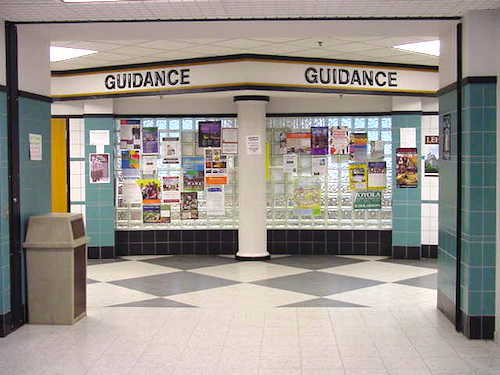
Colleges ask for all different numbers of recommendation letters. Each college sets its own policy, so it's always a good idea to double check each school on your list to make sure you understand exactly what it wants.
Typically, colleges want you to send a recommendation letter from your counselor. Additionally, they may ask for one, two, or, in rare cases, three letters from your teachers. This guide will go over the different guidelines so you know how many recommendations to collect when applying to colleges. First, let's go over the different options.
How Many Recommendation Letters Do Schools Require?
You might need anywhere from zero to four letters of recommendations. As mentioned above, the majority of colleges want to see at least an evaluation from your school counselor.
On top of this, many colleges, especially those selecting on the basis of academic merit, seek one or two teacher recommendations. Few colleges want to see three; usually, you'll only need three recs if you're applying to military school.
To find information on your specific colleges of interest, you can look on their admissions websites. If you're using the Common Application, then your app should also be customized to each school and its expectations.
While this guide doesn't cover every single college in the US (there are thousands!), it will go over some popular schools and their recommendation letter requirements. Let's start with schools that have minimum requirements and work our way up to the schools with the most.

You're off the hook for recommendation letters at these schools.
Popular Schools with No Recommendation Requirement
There are some schools, including competitive ones, that don't require any recommendation letters at all. Some of these may have a general "no rec letter" policy, but still advise you to check with your particular department or program. Others may ask you to send a recommendation letter later in the year.
Some of you reading this might breathe a sigh of relief, while others may want to send a rec letter and be disappointed. If you fall into the latter group, should you send your letter(s) anyway?
Again, it's always a good idea to check your school's website for information or call its admissions office directly for its advice. Some schools will read your letters if you want to send them, while others are rather adamant about not sending any.
Here are a few schools that, generally speaking, don't require recommendation letters:
- Penn State University (unless specified by a program)
- University of California schools
- University of Minnesota
- University of Texas
- University of Washington
Now for the schools that require one letter of recommendation - but only from your counselor.
If you're applying to any of the schools below, then a trip to your guidance department is in order.
Popular Schools that Require One Counselor Recommendation and No Teacher Recommendations
These schools just want to see an evaluation from your school counselor. As you can see, most of these schools are open to you sending a teacher evaluation if you think it will be helpful to your application.
- College of William and Mary (teacher recommendation is optional)
- Georgia Institute of Technology (teacher evaluation is recommended, but not required)
- James Madison University (teacher recommendation is optional)
- University of Richmond
If you do decide to send a teacher rec when it's not required, make sure it's a strong, substantial letter that you feel will truly help your candidacy. A common requirement of many four year colleges is one counselor recommendation and one teacher recommendation.

These next schools want you to send two letters of recommendation, as indicated by the diesmbodied floating hand.
Popular Schools that Require One Counselor and One Teacher Recommendation
These schools want to see one letter each from your school counselor and a teacher.
- University of Delaware (one required, suggests that most applicants submit more than one letter)
- Georgia Tech
- YU
- University of Maryland
- University of Massachusetts
- University of Virginia
- Wake Forest University
More selective colleges tend to require a counselor letter of rec and two teacher letters of recommendation. Check out of some popular schools with this requirement below.

If you're applying to any of the schools below, hopefully you have three smiling educators ready to write amazing things about you!
Popular Schools that Require One Counselor and Two Teacher Recommendations
Since these schools are particularly selective for academic ability, it makes sense that they want to hear about you and your work as a student from two different teachers.
| Amherst College | Duke University | Sarah Lawrence College |
| Barnard College | Emory University | Scripps College |
| Bates College | Harvard University | Skidmore College |
| Boston College | Harvey Mudd College | Smith College |
| Bowdoin College | Haverford College | Stanford University |
| Brown University | Johns Hopkins University | Swarthmore College |
| Bryn Mawr College | Juilliard School | Syracuse University |
| California Institute of Technology | Massachusetts Institute of Technology | Trinity College |
| Case Western Reserve University | Middlebury College | United State Coast Guard Academy |
| Colby College | Mount Holyoke College | University of Chicago |
| Colgate University | New England Conservatory of Music | University of Pennsylvania |
| Colorado College | Oberlin College | Vanderbilt University |
| Columbia University | Occidental College | Washington and Lee University |
| Connecticut College | Pitzer College | Wellesley College |
| Cornell University | Pomona College | Wheaton College** |
| Dartmouth College* | Princeton University | Williams College |
| Davidson College* | Reed College | Yale University |
*Dartmouth and Davidson additionally require a peer recommendation with the two teacher recommendations.
**Wheaton requires one teacher rec and one pastoral rec
Up until this point, you either had no choice in your recommender (as with your counselor) or could just choose one teacher. But as for the schools that require two letters, do they have any requirements about who exactly you ask to recommend you?
Guidelines for Your Two Teacher Recommendations
In terms of who you ask, colleges typically ask you to provide a range of perspectives, like one letter from a science or math teacher and one from a humanities or social studies teacher (this includes technical schools like MIT and CalTech). The other common policy is that the school leaves the choice up to you. In pretty much any case, you should ask two teachers from core courses.
If you're applying to an art or performance school, like Juilliard or the New England Conservatory of Music, then one of your letters should be an artistic recommendation from a private studio teacher, conductor, coach, or artistic mentor. As you saw above, a select few schools, like Dartmouth, Davidson, and Wheaton, get specific about additional peer or pastoral recommendations, but these are definitely exceptions.
Now that you have a sense of the colleges that want two teacher recommendations, take a look at the few that want three (FYI, they're all military schools).
Military Schools that Require One Counselor and Three Teacher Recommendations
These schools also require a nomination from a Congressperson, which essentially counts as another recommendation, bringing the number required up to five!
- US Air Force Academy
- US Navy Academy (math, English teachers and Blue & Gold officer)
- US Merchant Marine Academy
- US Military Academy (West Point)
Above, we briefly touched on whether or not you should send a letter even if your school doesn't require it. On a similar note, should you ever send an extra letter?

Extra! Extra! Read all about me!
Can You Send Extra Recommendation Letters?
Logistically, you should be able to send an extra recommendation letter via mail or assigning an additional recommender on your school application or Common Application. Many schools allow this option, but you should be cautious and make sure you understand your school's opinion about sending extra material.
Each school has its own stance on supplemental letters. If your school allows it, you want to make sure an extra letter adds something substantial to your application and comes from an authoritative source, like a community supervisor or spiritual leader with whom you've worked closely. Another circumstance in which an extra letter could be a good idea is if you attend a huge high school and haven't gotten to know your teachers or counselor very well.
Again, make sure to learn about your school's policy. You don't want to play into the old admissions saying, "The thicker the file, the thicker the kid." Admissions officers usually don't look fondly on too much extra material. Rather than helping your application, excessive supplemental could just end up raising red flags about the strength of your candidacy.
While researching your colleges' requirements is a critical first step in planning your recommendation letters, there are several other factors that require your attention. Read on for more on gathering recommendation letters, along with the resources that can help you through the process.

Tell me more.
What Else Do You Need to Know About Recommendation Letters?
Before you invite your recommenders to submit their letters online, you should be thoughtful about who you ask and how you make your requests. Make sure to ask teachers of core subjects who know you well and give them all the necessary information at least a month in advance, if not in the spring of junior year.
To get your best letter, part of this information should be a detailed resume and "brag sheet." Plus you can make appointments with your teachers and counselor to talk about your goals and what you'd like them to include in your letter.
Finally, make sure you understand your rights surrounding your rec letters and how to approach the FERPA question on your application. Then you can invite your recommenders and know that you did everything you could to get the best letters for your college application. The rest is up to them, except for that final step in the process - sending thank you cards for all their help!
What's Next?
Now that you have access to guides on everything you need to know about rec letters, check out this complete guide that takes you through the steps of applying to college. This guide includes everything you need to know about the application process.
If you're just starting to research colleges, check out this article on how to choose a college and all the questions to ask yourself when planning for your future!












